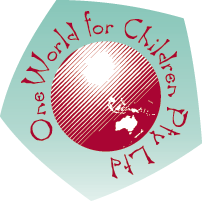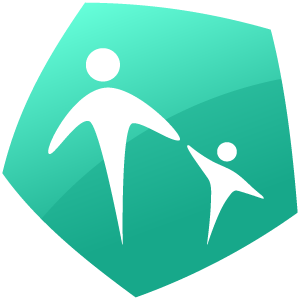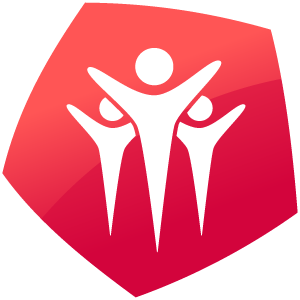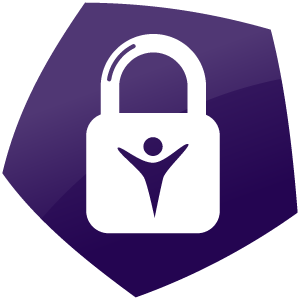Workshops/Inservices
Professional Support Program - Workshops Online
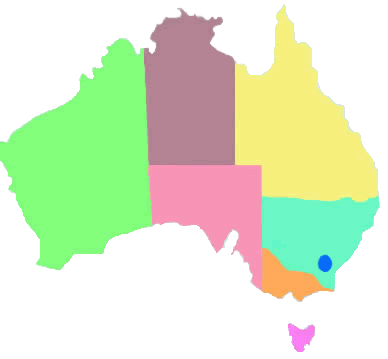
|
| Group | Title | Description | Session | ||||||||||||||||||||||||||||||||||||
|---|---|---|---|---|---|---|---|---|---|---|---|---|---|---|---|---|---|---|---|---|---|---|---|---|---|---|---|---|---|---|---|---|---|---|---|---|---|---|---|
| Program Planning
| Assessment for Learning | An assessment for learning ensures that educational programs and practices are inspiring and engaging to enhance children’s learning and development. You may rethink how you plan for children’s learning, and identify that in fact children’s current knowledge, ideas, culture, abilities and interests form your foundation to extend on children’s learning. As an educator, this session will assist you to measure children’s learning. Learning Outcomes
Designed for: All Qualified educators. All service types Quality Area: 1 EYLF Outcome: 4 | |||||||||||||||||||||||||||||||||||||
| Health and Safety, Leadership, Program Planning, Miscellaneous, Development
| Celebrating diversity in the team | Take a look at what culture is and ways we can define this, appropriate interactions and customs we must use , practicing patience, using humor, looking at differences from alternative perceptions, being prepared to make mistakes, learning to be an ally, getting to know individuals, listening to others stories, asking questions, making an overall effort and being sincere. Via identifying the needs of our culturally diverse co-workers and families, we can plan, ahead and gain an understanding of the importance of cultural consultation and support networks.
Learning Outcomes
Designed for: All educators. All service types Quality Area: 1, 4 & 7 EYLF Practices and Principles | |||||||||||||||||||||||||||||||||||||
| Health and Safety, Leadership, Program Planning, Miscellaneous, Development
| Conflict in the Workplace | Discover the common foundations built around conflict situations, why we can and do argue, difficulties we face when dealing with conflict and how we can personally adapt and accommodate this within our job role and responsibilities. Learn strategies and the utilisation of specific steps we can undertake when we are dealing with conflict and important elements we should and shouldn’t implement to ensure best possible outcomes and relationships within the workplace. Learning Outcomes
Designed for: All educators. All service types Quality Area: 4 & 7 EYLF Practices and Principles | |||||||||||||||||||||||||||||||||||||
| Program Planning
| Curriculum Possibilities | Are you finding that our extreme unpredictable weather is affecting the way you plan for your children? The Australian environment is known for its changeable weather and at times extreme circumstances. During this time, much of program planning is bought into the indoor environment to avoid the outdoor extremities. Join this interactive session to discover the wonder of bringing the outdoors in! We will look at inviting and natural ways to enhance indoor play when outside conditions limit outdoor play. Learning Outcomes
Designed for: All educators. All service types Quality Area: 1 EYLF Outcome: 2, 4 | |||||||||||||||||||||||||||||||||||||
| Program Planning, Miscellaneous
| Discovering Learning Stories | If the word “learning stories” has been used around your service and you have been thinking “what is all the fuss about?”, then we invite you to attend this session to gain an understanding of this flexible documentation tool. Learning stories allow educators to plan experiences that are focused on the child, that come from the child’s lead and are based on children’s observed interests. Join this session to gain knowledge about using learning stories in your program. Have the opportunity to discuss any questions you may have in learning more about learning stories. Learning Outcomes
Designed for: All educators. All service types Quality Area:1 EYLF Outcome: 1,3,4 & 5 | |||||||||||||||||||||||||||||||||||||
Program Planning, Development

| Engaging Learning Environments | When we thoughtfully and purposefully choose individual resources to construct rich learning environments the result is a place where children thrive as they play, learn and discover. Careful planning of the aesthetic environment will promote positivity about the environment and will consider the use of colour, light, design and space; a reflection of cultural heritage; and uncluttered space. Open-ended experiences including natural materials such as sand, water and mud as well as artefacts and tools that enable children to explore, investigate, problem solve and represent their understanding will feature in the engaging learning environment. Join us to explore how you can make your learning environments engaging too! Learning Outcomes
Designed for: All educators. All service types Quality Area: 1 & 3 EYLF Outcome: 4 & 5 | |||||||||||||||||||||||||||||||||||||
| Program Planning, NEW
| Exploring an Emergent Curriculum | Spend some time exploring an emergent curriculum approach to program planning. This contemporary approach will challenge your style of thinking and assist you to make the transition to the emergent curriculum smoothly! This session will revive your passion as you too emerge as an advocate to children and families. Learning Outcomes
Designed for: All Qualified educators. All service types Quality Area: 1 EYLF Outcome: 2, 4 &5 | |||||||||||||||||||||||||||||||||||||
| Program Planning, Miscellaneous, Development
| Exploring Art | Creating art is a fine way for children to make choices and solve problems. Every step involves deciding what colour to use, how to make a line, what size to make something. With every choice the object becomes more and more their own. Join this session to learn about the importance of creative arts and how to expose children to a variety of materials so that they can create art. Learning Outcomes
Designed for: All educators. All service types Quality Area: 1 EYLF Outcome: 4 & 5 | |||||||||||||||||||||||||||||||||||||
| Program Planning
| Exploring Children’s Senses | Join this fun session where we will share ideas about how to provide sensory opportunities for children to play. Learn about the sensory values of water, sand, slime, clay and finger-paint, and discover the magic that surrounds a children’s program that will foster a calming child centred approach.
Ideal for: ALL Child Care Workers Quality Area: 1 EYLF Outcome: 4,5 | |||||||||||||||||||||||||||||||||||||
| Program Planning
| Exploring Current Curriculum | Together we will explore a range of approaches to curriculum and to documenting children’s learning that incorporate contemporary images of children as strong and competent learners. Contemporary planning must foster collaborative partnerships between educators, children and families. These approaches acknowledge the expertise and interests of children and families and encourage their input in decision making. Our focus in this session, is to discuss an approach to programming that is specific to contexts and a program that is continually evaluated and modified. We will focus on the process of reflection, evaluation and ongoing improvement. Learning Outcomes
Designed for: All Qualified educators. All service types Quality Area: 1 EYLF Outcome: 1,4 &5 | |||||||||||||||||||||||||||||||||||||
| Program Planning, Development
| Exploring the Outdoor Environment | This online workshop aims to highlight the intrinsic value of outdoor play whilst exploring a range of stimulating discussion topics. So if you're looking for some new ideas, and/or some help with a specific problem you're experiencing relating to the great outdoors, then get ready to 'get down and get dirty'! Come and join us explore the outdoor environment. Learning Outcomes
Designed for: All educators. All service types Quality Area: 3 EYLF Outcome: 4 & 5 | |||||||||||||||||||||||||||||||||||||
| Program Planning
| Exploring the Outdoors | This online workshop aims to highlight the intrinsic value of outdoor play whilst exploring a range of stimulating discussion topics. So if you're looking for some new ideas, and/or some help with a specific problem you're experiencing relating to the great outdoors, then get ready to 'get down and get dirty'! Come and join us explore the outdoor environment.
Ideal for: ALL Child Care Workers Quality Area: 2 EYLF Outcome: 4,5 | |||||||||||||||||||||||||||||||||||||
| Program Planning, Development
| Focusing on Over 3's | Children over three are a lot of fun! They often spend a lot of time watching
and exploring everything around them and enjoy hands on experiences. Come and join in this workshop to gain some useful ideas for promoting children’s responsibility, developing positive behaviour and planning fun and exciting experiences that will keep them motivated to learn and development as individuals! Ideal for:Trained Child Care Workers Quality Area:1 EYLF Outcome: 1,3 | |||||||||||||||||||||||||||||||||||||
| Program Planning, Development
| Focusing on Under 3's | Early childhood is a precious time in life. We have the joy of watching children discover and learn about the world around them. Under the age of three is a very busy time of increasing independence and curiosity. They learn through interactions with people, active exploration and movement. Through these they quickly develop confidence, skills and knowledge. It’s important to develop trusting and positive relationships with children so they can feel safe and secure on their journey through childhood. Positive guidance, communication and interactions are an important part of this process. Come and join in the voyage for some practical solutions and idea’s to working with children under three. Ideal for:Trained Child Care Workers Quality Area: 1 EYLF Outcome: 1,3 | |||||||||||||||||||||||||||||||||||||
| Program Planning, Development
| Forming Friendships - Peer and Play | Building relationships and learning about friendships is an important part of the early childhood experience for young children. As we acknowledge the importance of the social context on children’s healthy development, we can begin to appreciate the importance of planning and facilitating a wide range of experiences that encourage children’s interactions and connections to each other. What skills does the child need? How can we support a healthy view of friendship? This interactive workshop will explore how early childhood professionals can enhance and support children as they navigate their way through the friendship terrain. Ideal for:Trained Child Care Workers Quality Area: 2 EYLF Outcome: 1,2 | |||||||||||||||||||||||||||||||||||||
| Program Planning
| Foundation Programming | Foundation planning has been developed to assist child care professionals, to fully gain an understanding of what has been known as a foundation of knowledge surrounding the basic fundamentals of program planning. This session will explore the foundation principles that will assist any professional child care worker in designing and implementing a program planning system to ensure that children’s individual needs are being met. The principles that will be covered in this session will include the process of: observing, interpreting, writing individual objectives, planning experiences, evaluating and modifying.
Ideal for: Qualified Child Care Workers Quality Area: 1 EYLF Outcome: 4,5 | |||||||||||||||||||||||||||||||||||||
| Behaviour, Program Planning, Development
| Group Times Made Easy | Group times are a way of connecting children together be it formally in a planned group session, or spontaneously when the moment presents itself. This workshop will examine the purpose of bringing children together in groups and the power these times have on children’s overall development. Through these times spent together both caregiver and child build the bonds of a strong relationship to each other through sharing stories, songs, ideas and feelings. This interactive online session will inspire you to provide creative and wonderful group times for all children.
Learning Outcomes
Designed for: All educators. All service types Quality Area: 1 EYLF Outcome: 1, 4, 5 | |||||||||||||||||||||||||||||||||||||
| Program Planning, Development, NEW
| Intentional teaching - learning how | Intentional teaching is deliberate, purposeful and thoughtful! It cannot be confused with a theme based programming approach. Intentionality utilizes professional knowledge and strategies that reflect contemporary theories and research concerning children’s play, leisure and learning. Learn how to make use of spontaneous teachable moments which extend children’s learning! Learn how to comment on children’s displays of learning dispositions, by providing encouragement and additional ideas and support to children! Learning Outcomes
Designed for: All Qualified educators. All service types Quality area: 1 EYLF Outcome: 4 | |||||||||||||||||||||||||||||||||||||
| Program Planning, Development
| Keeping Children Challenged | One of the challenges that early childhood educators face is developing and implementing challenging and innovative programs that enhance children's curiosity and desire for learning. As many of the children we care for have been part of our services for much of their lives, it becomes increasingly necessary to find ways to extend and challenge their skills and abilities with a balance of familiar and new experiences. To do this, we need to consider children as capable of directing their own learning and work in real collaboration with them. By collaborating with children we are able to provide authentic learning experiences that will be both challenging and enriching. Samples of some approaches may be Reggio Emilia, Steiner, and the Project approach as well as many other models available for consideration. We are inviting you to join this interactive workshop where we will discuss the range of options we have for keeping children challenged through a collaborative approach as well as explore a range of early childhood programs that will enable us to take an eclectic approach to our programming taking in the best aspects of a wide range of options and integrating these with our own service requirements. Learning Outcomes
Designed for: All educators. All service types Quality Area: 1 & 3 EYLF Outcome 4 & 5 | |||||||||||||||||||||||||||||||||||||
| Program Planning
| Know your Tune with Music | Music is everywhere! Patterns of sound are all around, becoming alive. You may believe that you are not musical; you may have been told that you cannot sing in tune, or that you have no sense of the beat; yet music is a part of the essence of all of us. This session will explore the importance of introducing literature to children through song in an enjoyable age/stage appropriate way. Come and sing your favourite song! Ideal for: ALL Child Care Workers Quality Area: 1 EYLF Outcome: 4,5 | |||||||||||||||||||||||||||||||||||||
| Program Planning
| Meaningful Documentation | Documenting children's learning is more than just collecting samples of work, photographs and learning stories. These documents need to be analysed for meaning. Learn about analysing observations by posing questions such as: What meaning the piece of work has for the child? How the documentation demonstrates learning across developmental domains? What strategies did the child use in the observation, such as problem solving? Join us to help you make more meaningful and purposeful observations to support children's learning. Learning Outcomes
Designed for: All Qualified educators. All service types Quality Area: 1 EYLF Outcome: 2 & 4 | |||||||||||||||||||||||||||||||||||||
| Program Planning, Miscellaneous, Development
| Music and Movement | Music and movement are inside each child. All caregivers do is let them out. That is good news for those of us who are not gifted in these areas. It tells us that all we need to do is encourage, not "teach" music and movement. In this online session, we will share some ideas that may help you "let the music out."
Ideal for: ALL Child Care Workers Quality Area: 1 EYLF Outcome: 4,5 | |||||||||||||||||||||||||||||||||||||
| Program Planning
| Natural Play Spaces - the possibilities | In constructing environments with children, the use of natural materials and play spaces, allows each child to participate and engage in their own unique way. This engagement enhances children's relationship with their environment and supports their growing curiosity and exploration which leads to many learning opportunities. As much evidence suggests children need more time in their natural world to develop strong connections, and a sense of place and harmony. This is recognized by the National Early Years Framework, which supports educators in connecting children to their world and developing a healthy respect for preserving the rights of this world. This interactive session will provide educators with an opportunity to consider how to incorporate natural play spaces not only in the outdoor environment but throughout the whole service. Learning Outcomes
Designed for: All educators. All service types Quality Area: 2 EYLF Outcome: 1 | |||||||||||||||||||||||||||||||||||||
| Behaviour, Program Planning, Development
| New room - New ideas! | Children are born with the need to explore. They investigate their world through play. As facilitators of children’s play, educators must ensure that learning environments are designed and implemented to collaborate and engage children in meaningful play and exploration. Open your mind to creativity, imagination and resourcefulness; create aesthetically pleasing engaging environments for children of all ages. Learning Outcomes
Designed for: All educators. All service types Quality Area: 1 & 3 EYLF Outcome: 4 & 5 | |||||||||||||||||||||||||||||||||||||
| Program Planning, Development
| Open Ended Experiences | The provision of open-ended experiences acknowledges children as competent and capable learners who are able to direct their own learning and make meanings. Open-ended experiences include natural materials such as sand, water and mud as well as artefacts and tools that enable children to explore, investigate, problem solve and represent their understanding. This session will explore the value of open ended experiences, and what a positive impact this will make when developing a program for children. It will include many visual photographs of open ended experiences. Learning Outcomes
Designed for: All educators. All service types Quality Area: 1 EYLF Outcome: 4 & 5 | |||||||||||||||||||||||||||||||||||||
| Program Planning, Miscellaneous, Development
| Planning for an Anti-Bias Curriculum | Planning for an anti-bias curriculum, promotes positive attitudes towards diversity and to counter stereotypes and discrimination. It is evident that young children notice diversity, that they make evaluative judgements about differences and that they develop biases from a young age. Join the discussion in this session about the importance of planning and implementing an anti-bias curriculum. Learning Outcomes
Designed for: All educators. All service types Quality Area: 1 & 3 EYLF Outcome: 1, 3 & 6
| Program Planning
| Room Aesthetics
| First impressions on your service are often based on aesthetics. Visual, creative environments should have thoughtful use of colour, light, design and space; a reflection of cultural heritage; and uncluttered space. Ideal for: ALL Child Care Workers Quality Area: 3 EYLF Outcome: 4,5
| Program Planning, NEW
| 

Special Presentation - So who am I documenting for anyway - The secret to documentation THEY don’t want us to know with Semann and Slattery
| Let’s get it straight, when done correctly, documenting children’s learning is not hard, time consuming, or even complicated.
In this session we will unpack the document process, reflect upon what you are currently doing, look at the challenges and strengths to different strategies out there, and finally, once and for all settle the debate about who we are doing documentation for anyway.
If you want to develop reflective documentation process which include the voice of the children, parents and educators while virtually writing themselves, then this is the training for you. Making documentation work for you, not against you.
|
| Program Planning, Miscellaneous
| STEM learning with children
| STEM – science, technology, engineering and maths – are a part of everyday life for today’s children. Children’s play is filled with opportunities to hone in on their STEM skills. You might see this incidentally when they measure an ingredient for a sandpit cake or in an intentional teaching moment when they get excited as the vinegar reacts with the bi carb in the volcano. When children are presented with the right opportunities to investigate and manipulate a wide range of resources and materials they can develop and consolidate the concepts and skills that set them up as a competent STEM learner. Join us as we explore the value of Stem learning for children, planned and spontaneous experiences that facilitate STEM based learning as well as the educator’s role in supporting this. Learning Outcomes Designed for: All educators. All service types Quality Area: 1 & 3 EYLF Outcome: 4 & 5
| Program Planning, Development
| Supporting Children with Additional Needs
| Every child has the right to feel safe, secure and supported in their Early Childhood setting. By catering for individual children’s needs and by treating each child with respect, you are setting an example of inclusion. It is important that you have a strong understanding of each child’s interest, strengths and needs, so that you can provide a responsive curriculum and identify any areas requiring extra support and attention. This session is aimed to support the actions and attitudes that may be faced with situations of children with additional needs Learning Outcomes Designed for: All educators. All service types Quality Area: 1 & 3 EYLF Outcome: 1,2,3 &4
| Program Planning
| The Abecedarian Approach
| The principles and experiences of the Abecedarian approach may help you discover the four elements that produce positive, long lasting changes in children’s development. If you haven’t heard of the Abecedarian approach, but are interested in the four elements the approach has to offer: Learning games; Conversational reading; Language priority and Enriched care giving… then this session will help you experience the relationship between the Abecedarian approach and the Early Years Learning Framework. Learning Outcomes Designed for: All Qualified educators. All service types Quality Area: 1 EYLF Outcome: 4
| Program Planning, Development
| The Inclusion of Children with Additional Needs
| Every child has the right to feel safe, secure and supported in their Early Childhood setting. By catering for individual children’s needs and by treating each child with respect, you are setting an example of inclusion. It is important that you have a strong understanding of each child’s interest, strengths and needs, so that you can provide a responsive curriculum and identify any areas requiring extra support and attention. This session is aimed to support the actions and attitudes that may be faced with situations of children with additional needs Learning Outcomes Designed for: All educators. All service types Quality Area: 1 & 3 EYLF Outcome: 1,2,3 &4
| Program Planning
| Valuing Children's Play
| Play really is the "work" of children. It is how they work on new skills, how they work in new understanding, and how they work out their problems. Play is linked with creativity, providing children with opportunities to express themselves in unique ways.
Play is a great opportunity for children to find and solve problems. Problems children encounter in play tend to be relevant and meaningful. Children approach play with intensity and seriousness. For them, it can be a real challenge to work out how to keep a roof on a cubby, or how to get the baby into the cot for a sleep.
Step back into the shoes of children, and truly encompass the value of play.
| Learning Outcomes Ideal for: All Educators Quality Area: 1 EYLF Outcome: 4,5
| Health and Safety, Leadership, Program Planning, Miscellaneous, Development
| Working with Conflict Resolution
| Join other child care professionals to discuss practical information to assist in helping children to resolve their conflicts with each other. We will identify how conflicts can be the beginning of something new and good! By children talking, listening and working things out together, peace can be protected. | “It takes two to work together, but it also takes two to fight. And often, it only takes one to begin the first step towards a peaceful solution. (Scholes & Ingpen, 1989) Ideal for: ALL Child Care Workers Quality Area: 4 & 7 EYLF Outcome: 1,3,4
| Program Planning, Miscellaneous
| Working with Natural Materials
| In constructing environments with children, the use of natural materials and play spaces, allows each child to participate and engage in their own unique way. This engagement enhances children's relationship with their environment and supports their growing curiosity and exploration which leads to many learning opportunities.
| |
